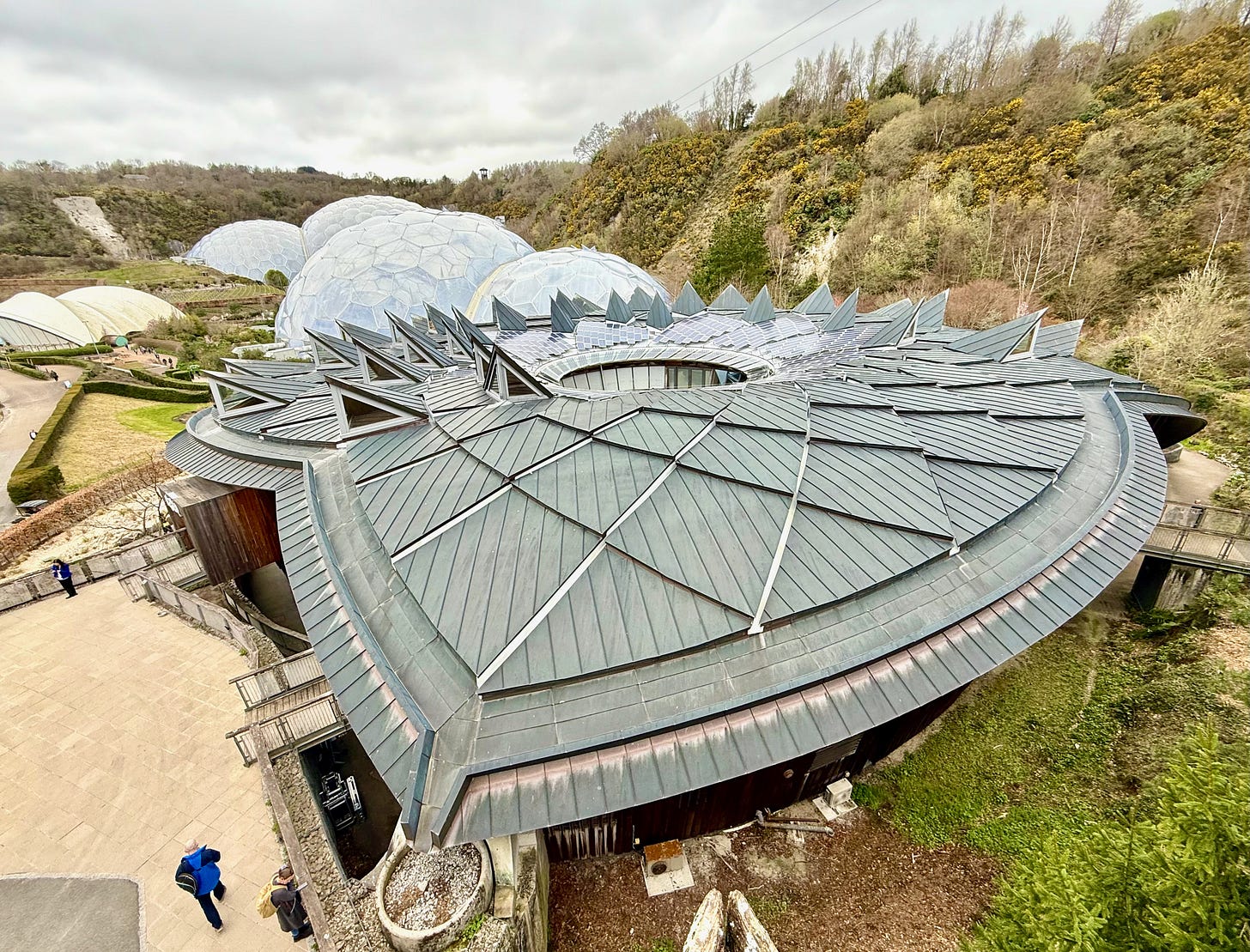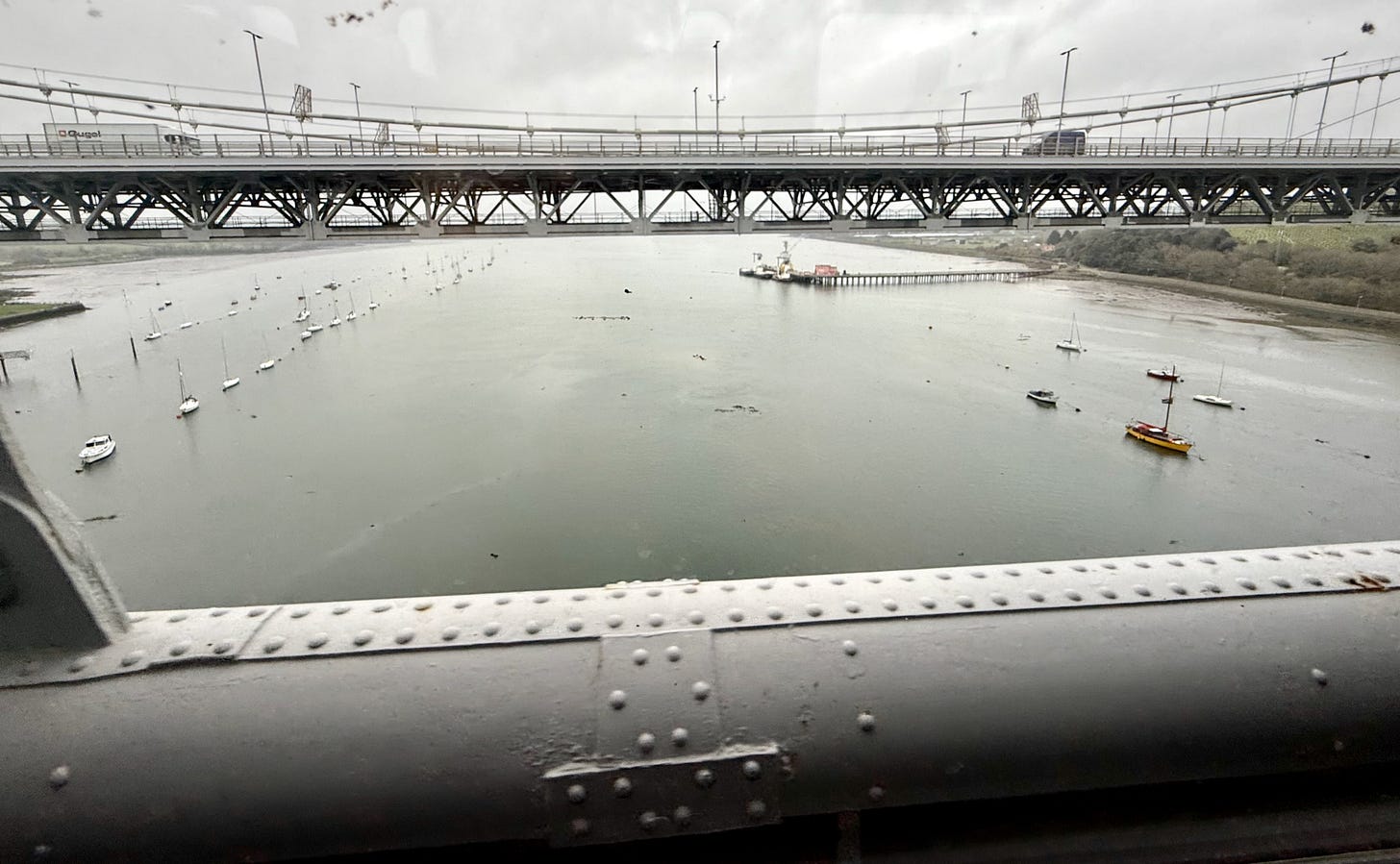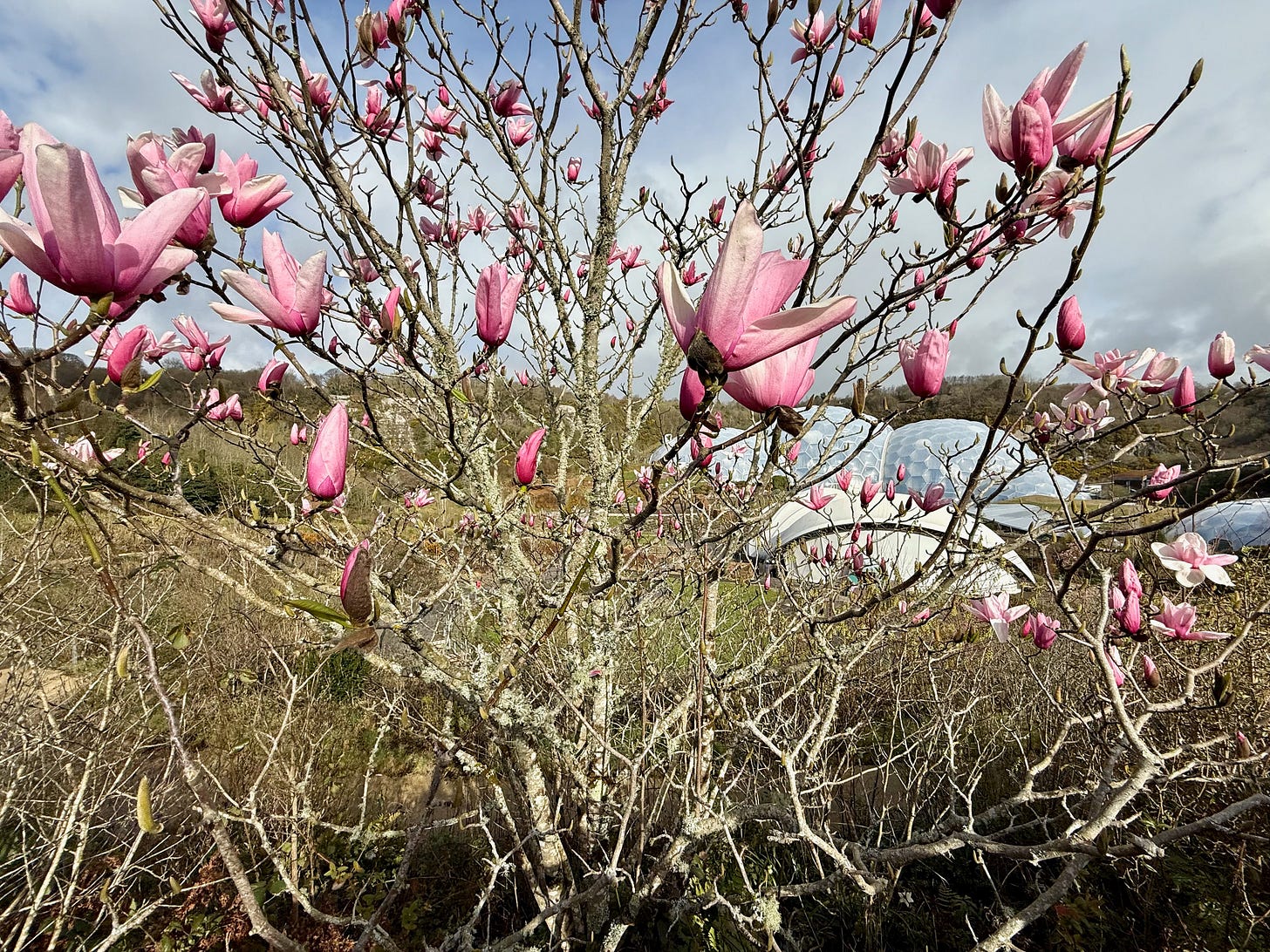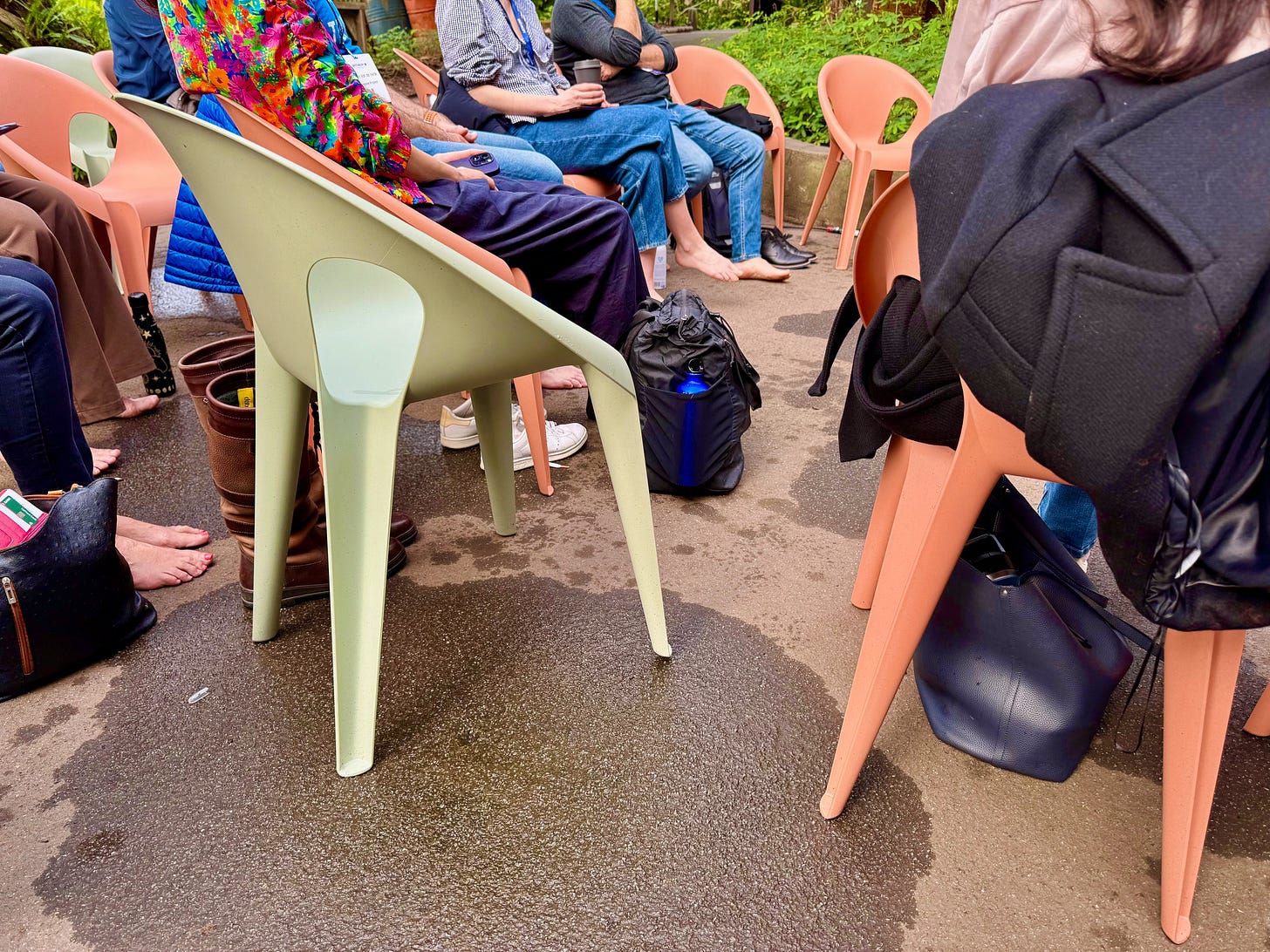

If hugs could save the world, I thought as I made my way around the third annual Anthropy event at the Eden Project, then we’d be almost in the clear. Or at least I would.
What a wonderful way to keep in touch with Britain’s “future makers”—and yet…
As someone who hates being labelled, I have never quite managed to embrace the term “Anthropist,” even though I was part of the roiling group of people who helped John O’Brien launch what is now billed as Britain’s largest gathering of future-makers.
The initiative started in the midst of a global pandemic. In 2021, by its own account, “business leader and serial campaigner John O’Brien MBE conceived the initiative as a means through which Britain could emerge stronger after the pandemic and look to re-envisage itself and its role in the world.”
John chose the Eden Project, Cornwall, to provide a suitably striking backdrop for the gathering—itself a remarkable illustration of visionary leadership and regeneration.
Unbound leadership?
Having first visited the old china clay workings back in 1977, while writing a piece on environmental regeneration for New Scientist, I constantly marvel at what Sir Tim Smit and his team have managed to pull out of the hat here.
Meanwhile, with the Trump Gang raging offstage, I suspect that many delegates were happy simply to kick off their shoes (in the case of at least one session I was part of), breathe in the country air and enjoy the rain-tinged sunshine.
Still, as I moved from one session to the next, I kept the Anthropy Charter—and the linked map (see above)—very much in mind. Centered on dynamic stewardship, this social change dynamo has three main working parts: human kindness, meaningful collaboration, and unbound leadership.
I saw plenty of evidence this year of the first, a fair amount of the second, but—to be honest—less of the third than I had hoped for.
Time of monsters
Among the exceptions I heard was Dame Julia Cleverdon, motto “Connecting the Unconnected,” who now chairs the National Lottery Community Fund. She reminded the audience that the National Lottery originally helped get the Eden Project off the ground.
Her session in the Mediterranean Biome surfaced that old saying: “The old world is dying, and the new world struggles to be born: now is the time of monsters.” Attributed to the Italian Marxist philosopher Antonio Gramsci, it captures our present circumstances wonderfully well.
Asked what her vision was for the future of Britain and she named several things. Among them, a country confident in its own identity, with the tide of child poverty reversed so that the country could lay claim to the happiest children in the world, rather than the most miserable.
But, she warned, we cannot expect politics and politicians to do this on their own. Instead, leadership must come from all sectors. And to drive that, we need a much more powerful, well-grounded narrative of hope.
Another leader who, I’m told, gave the Volans team hope was Tony Juniper, who featured in the latest edition of the Volans Book Club, hosted by our CEO, Louise Kjellerup Roper, and broadcast from the heart of the Anthropy event. He spoke about his new book, Just Earth: How a Fairer World Will Save the Planet.
As his publishers note:
From soil loss to wildfires, degraded rivers, mass migration and conflict, the environmental crisis is already here - and it's set to get much worse. While billionaires build remote bunkers and make plans for colonies on Mars, climate collapse impacts the most vulnerable among us first and hardest. But what this radical and ground-breaking book proves is that inequality isn't just about who suffers the consequences, it is the main obstacle blocking action – and it has been for decades.
How can people lead good lives without ultimately hastening global collapse? The answer lies in fairness. We can't fight the climate and nature crises without addressing the ever-widening gaps between the rich and poor, the powerful and the weak.
Plan B
True, because I was late in from Helsinki, arriving when Anthropy 2025 was already well under way, I missed a bunch of other stuff that might have been off-the-scale wonderful. But one thing I was very thankful to have missed was the session spotlighting Conservative Party leader Kemi Badenoch.
By all accounts, as we used to say, she got away with murder.
An opponent of Britain’s net zero strategy, and with a voting record skewed toward the sort of idiocies designed to endear her to the Trump regime, she was allowed—by all accounts I heard—to get away more or less unchallenged.
Hopefully, she will not now opt to call herself an Anthropist, which—at least my mind—pretty much by definition requires a mind open to alternative views. A committed Brexiteer, she only recently has owned up to the fact that, outrageously, the race for the exit was poorly thought through, with no plan for life outside the EU.
The key question I left Eden with is whether we—Anthropists or otherwise—can develop an alternative plan, that fabled Plan B, for what happens when America and the world wake up to the fragility and existential dangers of the entire Trump excursion from the norm.
And, much as I embrace them, hugs will only get us so far on that journey.














Like John and Volans, Yomorrow's Company and I have sought to help Anthropy on its way. I wasnt able to attend the session with Kemi Badenoch because Michael Solomon and I were running a session at the same time which asked for game changing ideas to transform our current system of value/wealth creation. We heard from Jyoti Banerjee of North Star Transition of the place-based transformation he is devloping in Wales -a fine example of of what John might call Rewilding Markets! Rita Clifton too gave examples from the place-based and integrative work work of Forum for the Future around food and agriculture in India and elsewhere We heard from Will Hutton on the possibilities of mobilising the collective power of small pension fund into superfunds of real potential. Michael Solomon of Responsible 100 described how his challenge to water companies at previous Anthropy gatherings was now leading to an effort to create transparency. I am working with Tomorrow's Company and the BSI on efforts to catalyse a combined and effective use by government departments of the power of public procurement to prioritise companies of good character. I hope all this may count as a contribution towards the Plan B? Havent got any decent photos though!
To truly embrace Plan B, it seems that we need a strong vision and a significant shift in mindset. It requires plenty of courage, creativity, and focus. While right-wing ideologies continue to dominate across the world, and perhaps this mindset is sometimes fed by human nature and the overall insecurity that keeps us trapped in that cycle, it extends and perpetuates the spiral. I want to deeply understand what can succeed in a world free from dictatorships, when humans are left to their own devices. Because, in this current reality, the rapid development of countries often relies on oil or dictatorship, for example. While history may not repeat itself exactly, human nature does not change, and it is tied to the power spiral. That’s why I wonder if Plan B, with its different options, should be included in the vision—perhaps with concepts like AI, a new, smarter Übermensch, or even religious perspectives. But for this to work, it needs to resonate with the masses, the average human crowd.